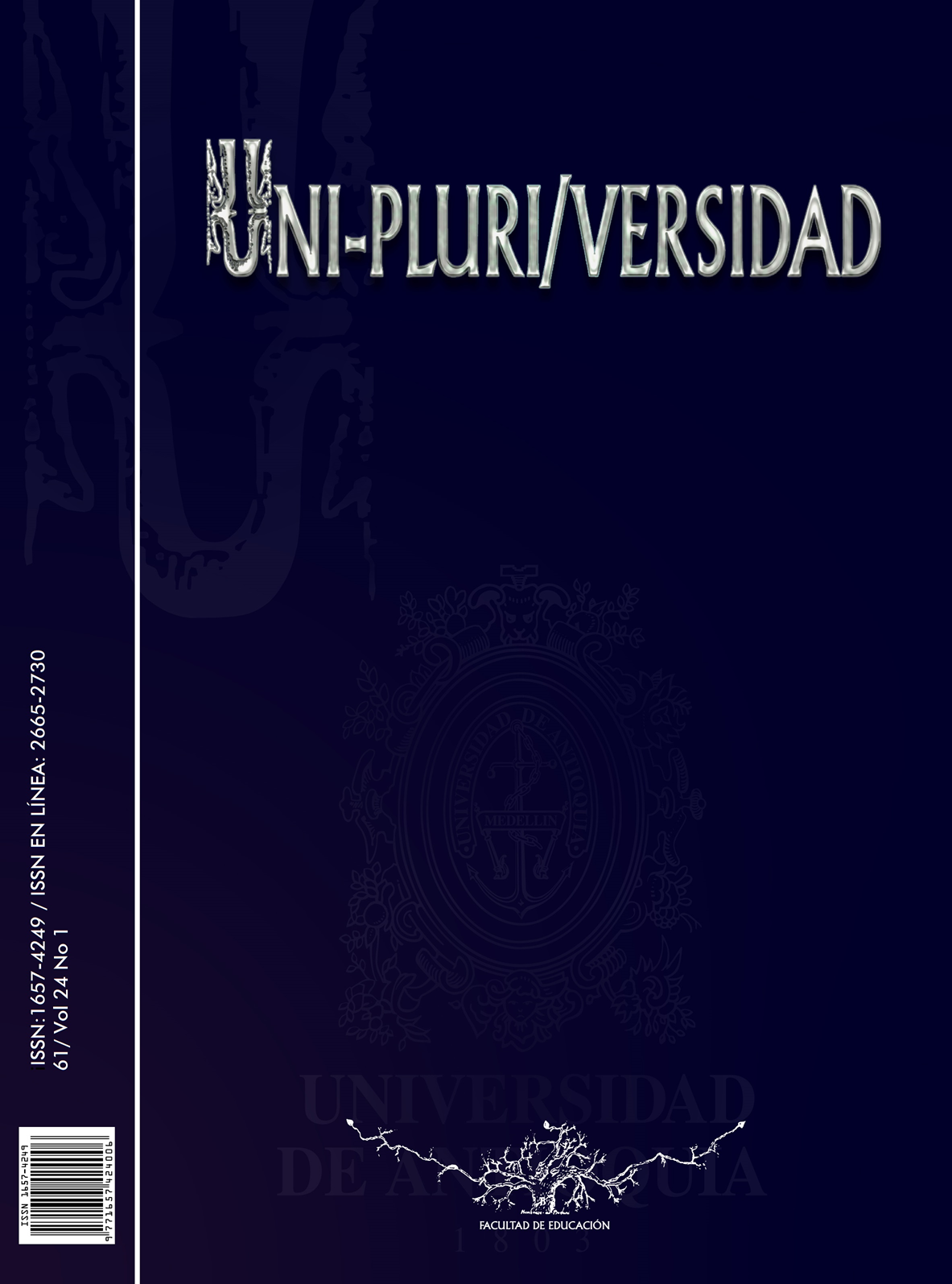The cognitive architecture of inclusive education
DOI:
https://doi.org/10.17533/udea.unipluri.355270Keywords:
inclusive education; epistemology; radical contextualism; alter-disciplinarity; theoretical nomadism; knowledge project in resistance.Abstract
This work is based on the statement that maintains that any analysis that involves the use of the substantive 'inclusion' must guarantee a framework of interpretation to understand how certain individuals and groups are subordinated within different specific systems of power. Inclusive education as a knowledge project in resistance recovers some of the most far-reaching premises of various intellectual projects that emerge through the Western theoretical-critical tradition. Its focus positions the gaze around the type of arguments and premises that assemble its construction, cautioning that certain ideas and conceptual bodies that appeal to social justice avoid incurring in the proliferation of new forms of inequality. The purpose of this work is to explore some of the defining elements that participate in the construction of the cognitive architecture of inclusive education. Inclusive education is born from a field of multiple theoretical and epistemological roots in resistance. Although they are heirs of certain points of analysis typical of Western critical and social theory, their aims and purposes differ in terms of their languages, objects theorists and propositions. It is the type of gestures, especially minor ones, that begin to deterritorialize their axes of work. The method used is critical documentary review. Among its main conclusions: a) Both radical contextualism and external relations become essential constructs to understand the construction of knowledge of inclusive education and b) the theory of inclusive education consolidates an open knowledge structure, a horizon in permanent reconstruction, allowing its subjects to locate and reposition themselves in a completely different way. Inclusive education is an open horizon. His paradigmatic thinking is his opening point in the construction of his theory and epistemology.
Downloads
References
Collins, P. (2019). Intersectionality as Critical Social Theory. Duke University Press.
Guattari, F. y Deleuze, G. (1975). Kafka. Por una literatura menor. Ediciones Era.
Grossberg, L. (2016). We All Want to Change the World. The Paradox of the US Left. A Polemic. Lawrence & Wishart.
Hall, S. (1992). ‘Cultural Studies and Its Theoretical Legacies’ en L. Grossberg, C. Nelson y P. Treichler (Eds), Cultural Studies. Routledge.
Kuhn, Th. (1970). La estructura de las revoluciones científicas. FCE.
Lugones, M. (2021). Peregrinajes. Teorizar la coalición contra múltiples opresiones. Ediciones del Signo.
Navarrete, M., Ossa, S., Rosas, G. y Yepes, R. (2021). Completando el contextualismo radical. Tabula Rasa, 37, 257-281.
Ocampo, A. (2017). Epistemología de la educación inclusiva: un estudio sobre sus condiciones de producción y fabricación del conocimiento. Ediciones UGR.
Ocampo, A. (2019). Claves heurísticas de la Educación Inclusiva. Leplage Em Revista, 6(2020): Sept/Dec. (Especial)-Educação e Desafios, 71-87.
Ocampo, A. (2021). Inclusion as a knowledge project in resistance. Espacio I+D, Innovación más Desarrollo, X(26), 27-67.
Ocampo, A. (2022). Epistemología de la educación inclusiva y sus condiciones de producción. Revista Educação em Foco, 27, 1-22.
Ocampo, A. (2023). Inclusive education as a heuristic device. Region-Educational Research and Reviews, 5(3), 27-41.
Spivak, G. (2003). La muerte de una disciplina. Ediciones U.V.
Downloads
Published
How to Cite
Issue
Section
License
Copyright (c) 2024 Universidad de Antioquia

This work is licensed under a Creative Commons Attribution-NonCommercial-NoDerivatives 4.0 International License.
Authors who have publications in this Journal accept the following terms:
- The content of each article is the responsibility of its authors
- The author(s) preserve(s) the moral rights over the article and transfer(s) the patrimonial rights to the University of Antioquia, which can publish it or distribute electronic copies, as well as include it in indexing services, directories or national and international Open Access data bases, under the Creative Commons Attribution License (CC BY-NC-ND).
- The author(s) should sign a declaration of transfer of economic rights to the University of Antioquia, after the acceptance of the manuscript.
- Authors are allowed and advised to disseminate their work through the Internet (eg, institutional telematic archives or their website) before and during the submission process. That can produce interesting exchanges and increase citations of the published work.
- The author(s) has (have) the responsibility to arrange and get the necessary permissions to reproduce any material protected by copyright.











